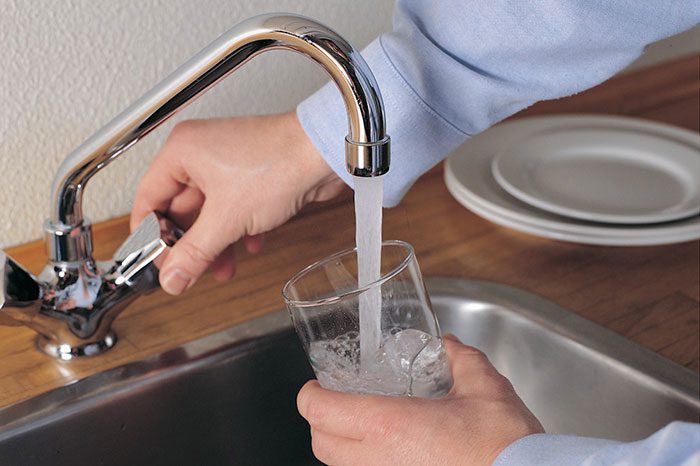Energy-efficient water pumps can help Thailand achieve its target of carbon neutrality by 2050 and net-zero emissions by 2065, says a senior executive of Grundfos, one of the world’s largest pump manufacturers.
Giancarlo Roggiolani, Grundfos’ Senior Regional Sales Director for Domestic Building Services for Asia-Pacific and China, reckons that Thailand’s water solutions industry has been making promising progress in closing the gaps on how water is treated and circulated across the nation.
“As the industry makes headway in this regard, Grundfos looks forward to working with more key stakeholders in the value chain to identify and act upon opportunities to innovate new and improved water solutions, to ultimately create a bigger and more accelerated movement towards reaching Thailand’s 2050 carbon-neutrality target,” he told The Story Thailand.
Grundfos, founded in 1945, is one of the largest pump manufacturers in the world with a global reach spanning more than 130 countries. It offers a wide range of pump solutions for water and wastewater applications and industrial, agricultural, and building services. Headquartered in Denmark, Grundfos has more than 50,000 employees across 100-plus countries.
Roggiolani, who doubles as the Country Director for Grundfos Pumps Malaysia, has 24 years of career with Grundfos and its acquired companies in Italy, Singapore, Indonesia, and Malaysia.
‘Water is often overlooked’

He said that while consumers recognize the need to implement energy-saving measures at home, a greater understanding of how to do so remains a challenge.
“An often-overlooked aspect is water, as many people may not realize that water consumption is intricately linked to energy consumption, subsequently impacting carbon emissions,” Roggiolani said.
“It takes energy to move water at every stage of the water cycle – from withdrawal to transport, recycling to discharge. Similarly, the process of energy generation relies heavily on water resources,” he explained.
In the context of household water use, a study revealed that water end-use in homes accounts for approximately 80% of carbon emissions in the water cycle, he said.
According to the Grundfos executive, water pumps play an important role in the systems that ensure comfort and safety in the home, as unfit or defective products can not only lead to water wastage but also energy inefficiency.
He said that by constantly monitoring water pressure at the taps and adjusting performance to demand, smart pump solutions ensure that the water pump is always running at optimal performance. This improves home comfort while reducing energy use, he added.
Roggiolani said consumers should understand that reducing water usage – particularly hot water use – at home can support the lowering of energy use.
“This not only presents a meaningful opportunity to reach energy efficiency targets but also leads to savings on utility bills,” he said.
Thailand confirms its efforts to meet the long-term goal of carbon neutrality by 2050 and net-zero GHG emissions by 2065.
With the goal and a global energy crisis that affects electricity costs, Roggiolani pointed to “a greater swing towards more efficient use of energy among Thai households who are eager to find strategies to minimize their energy usage and save on utility expenses.”
Barriers at consumer level
He said there were also initiatives by the Thai government to encourage the uptake of energy-efficient practices at home have also helped to spur greater awareness of energy use and energy-saving measures.
However, despite increased consumer awareness and government-led efforts to promote energy conservation, barriers remain in promoting energy efficiency at the consumer level in Thailand, according to Roggiolani.
“While consumers recognize the need to implement energy-saving measures at home, a greater understanding of how to do so remains a challenge,” he said. “Also, homeowners might be deterred by the upfront costs of implementing more energy-efficient measures and perceive the transition to be a costly one.”
He gave as an example the circulator pump used for hot water recirculation at home. Grundfos circular pumps may be costly, but they are cost-effective, he said.
“Designed for best-in-class efficiency with low maintenance, Grundfos circular pumps have the potential to cut energy consumption by up to 80%, compared with conventional circulators,” Roggiolani said.
“Fostering greater awareness of the available cost-effective technologies and solutions can encourage more homeowners to green their homes and drive both immediate and long-term impact in energy savings.”
Water pump solutions
According to the senior director, Grundfos’ Domestic Building Services business unit focuses on “enhancing the water experience and comfort in homes while offering sustainable choices that help consumers save energy and water.”
He said Grundfos has a comprehensive line of water pump solutions for Thai families. They include products for boosting water pressure, wastewater pumping and transportation, and domestic hot water recirculation – “all designed to align comfort with efficiency, supporting consumers’ pursuit of a greener lifestyle”, he added.
For instance, Roggiolani said, Grundfos’ Scala range – Scala1 and Scala2 – enables households to boost water systems effectively and efficiently with a variety of pumps ranging from applications of water boosting to water transfer, ensuring consistent, adequate and on-demand water supply and water pressure.
The intelligent solution adjusts its performance according to household water demand, eliminating pressure fluctuations and resulting in lower running costs, according to the executive.
Scala1 can be paired with Grundfos’ Go Remote app, allowing users to monitor and detect any warnings and leakages related to their water pump, as well as schedule the pump’s operation according to their needs. Additionally, compared to traditional booster pumps with fixed speed, Scala2 offers a pressure booster solution with variable frequency drive, helping homeowners and residents to save on their total energy consumption.
Mounting pressure for Asia
The Grundfos executive says that demand for water and energy will continue to be on the rise, as the global population grows, more countries urbanize, and people get increased incomes.
“Asia is facing mounting pressure to be more sustainable as part of global efforts to slow down climate change. The region has accounted for more than half of global carbon dioxide emissions since 2019. Across the Asia-Pacific region, more than 15 countries have set or are committed to setting emission-reduction targets, and decarbonizing business operations is quickly becoming a license to operate for companies across the region,” he said.
The executive also pointed to current “mega-trends” in the water sector – increasing water efficiency across various industries and in household consumption, improving water quality, reducing water loss, and climate adaptation.
“How we see this playing out in the industry will be a transition towards more sustainable solutions and policies that utilize energy and water in socially and environmentally responsible ways,” he said.
Roggiolani reckoned that households would also be empowered to harness water sustainably, by adapting their consumption rate for the better through digitalization and data, keeping an eye on their water usage, and responding with ‘water-wise’ behaviour, such as employing smart home water systems, water meters, rainfall shutoff devices, and low-flow showers.
Appsynth seeks to expand through IP creation, partnership with clients
VCs get choosier in funding startups, but Southeast Asia still has big growth potential





